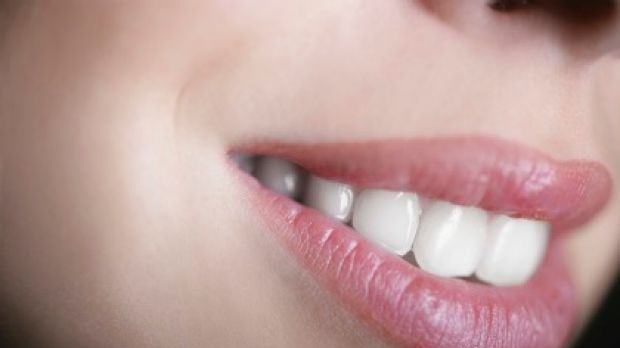Get healthier gums and improved oral health with Mexican sunflower essential oil
03/12/2020 / By Evangelyn Rodriguez

Essential oils are concentrated extracts derived from plants through mechanical pressing or distillation. These natural products not only retain the smell and flavor of their sources, they also contain a unique composition of plant compounds that can provide numerous health benefits.
Essential oils have been used for centuries as natural remedies. While they are best known for their positive influence on mental health, essential oils can also serve as therapeutic agents for a variety of health problems. For instance, a study published in the Journal of Essential Oil Research highlighted the antibacterial and anti-inflammatory effects of Tithonia diversifolia (Mexican sunflower) essential oils. According to researchers from the University of Sao Paulo in Brazil, the oils from the leaves and inflorescences of Mexican sunflower can inhibit edema and stop the growth of the oral bacterium Streptococcus mutans, which is a significant contributor to tooth decay or dental caries.
The beneficial properties of Mexican sunflower essential oil
Mexican sunflower is a short-lived, perennial plant that can be found in tropical and subtropical regions. It is commonly used as a medicine, a source of fuel, an ornamental and as a companion plant due to its ability to improve the soil and increase the yields of different crops.
According to studies, the leaves of Mexican sunflower have many health-promoting properties. Besides showing antibacterial activity against Gram-positive and Gram-negative bacteria, they could also reduce pain, decrease blood glucose levels, lower plasma insulin levels and clear malarial parasites. In addition, Mexican sunflower leaves contain sesquiterpene lactones like tagitinin that possses insecticidal properties.
In traditional medicine, Mexican sunflower is used to treat malaria and painful inflammatory conditions. Its leaves are often used to make natural remedies for a variety of complaints, including constipation, stomach pains, indigestion, sore throat, liver pains, external wounds and hematomas.
When the Brazilian researchers analyzed the chemical composition of Mexican sunflower, they found that the essential oils derived from its leaves (EOL) and inflorescences (EOI) are mainly composed of a-pinene and B-pinene. These aromatic compounds are known for having a wide range of therapeutic properties, such as anti-coagulant, anti-tumor, anti-microbial, anti-malarial, antioxidant, anti-inflammatory and analgesic properties.
The researchers reported that, at a concentration of 0.5 percent (volume per volume solution, v/v), EOL displayed potent anti-edematogenic activity, while EOI did the same at a concentration of 2.5 percent (v/v). Edema refers to the swelling caused by fluid accumulation in body tissue. Acute inflammation, which is triggered by tissue injury, is a common cause of edema.
In addition to inhibiting edema, the researchers also reported that EOL and EOI prevented the production of acids by S. mutans at concentrations that were non-toxic to human gum cells. EOI also displayed a more potent anti-microbial activity against cariogenic microorganisms than EOL.
Based on these findings, the researchers concluded that the essential oils of Mexican sunflower can be used to stop swelling and prevent tooth decay caused by cariogenic microbes like S. mutans.
Tips for choosing and using essential oils
Essential oils are often used in aromatherapy for the purpose of improving mood and relieving stress and anxiety. While plenty of essential oils are now known to produce these effects, the potentials of other less-common essentials oils have not yet been explored.
If you’re looking to use essential oils for a different purpose besides elevating your mood, be proactive about doing research and talk to certified aromatherapists. They can help you identify which essential oils will suit your needs. There is also a right way to use and apply essential oils, as well as cautions that you need to consider to avoid unpleasant reactions or any adverse effect.
Essential oils can either be inhaled, ingested or applied to the skin. But remember that only food-grade essential oils are for internal use. Some essential oils could also irritate the skin when applied directly as these are concentrated. Hence, you will need to dilute them with a carrier oil before using them on your skin.
For your safety, always seek advice from trained individuals prior to using essential oils.
Sources include:
Submit a correction >>
Tagged Under:
alternative medicine, anti-inflammatory, antibacterial, dental health, edema, essential oils, herbal medicine, Herbs, Mexican sunflower, natural antibiotics, natural cures, natural medicine, oral health, phytonutrients, prevention, remedies, research, Streptococcus mutans, tooth decay
This article may contain statements that reflect the opinion of the author
RECENT NEWS & ARTICLES
COPYRIGHT © 2017 HOLISTIC DENTISTRY NEWS



















